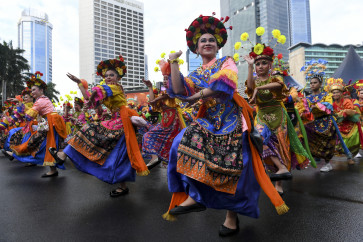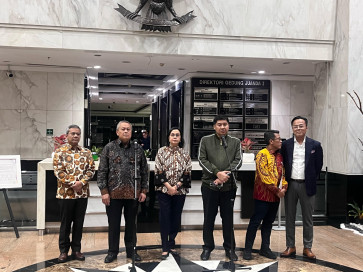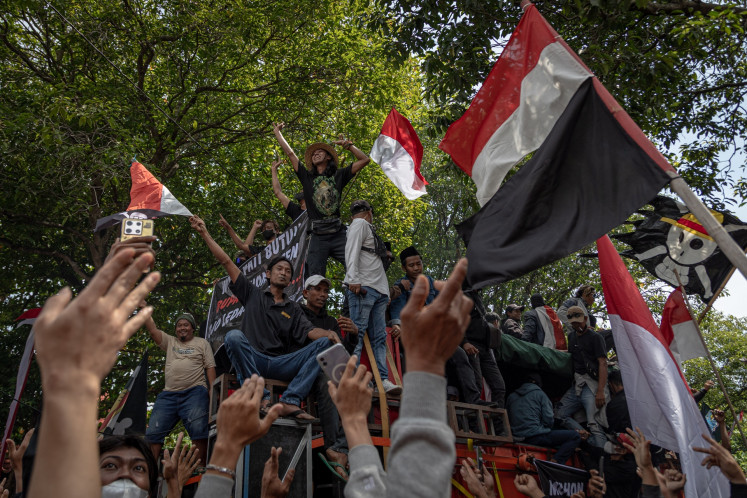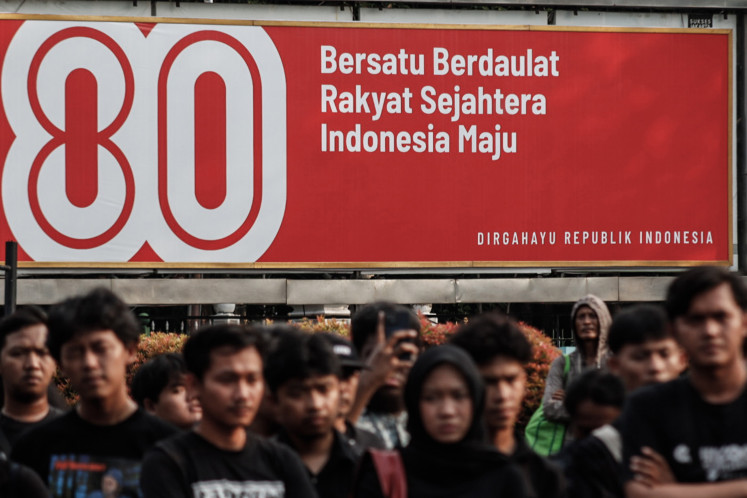Popular Reads
Top Results
Can't find what you're looking for?
View all search resultsPopular Reads
Top Results
Can't find what you're looking for?
View all search resultsBisi targets 2009 revenue and profits to increase by 10%
Publicly listed agribusiness company PT Bisi International is setting a fairly modest growth 10 percent target for its full-year revenue and net profits, as unpredictable market trends may affect sales
Change text size
Gift Premium Articles
to Anyone
Publicly listed agribusiness company PT Bisi International is setting a fairly modest growth 10 percent target for its full-year revenue and net profits, as unpredictable market trends may affect sales.
"The target is not so high since this year, sales and demand will be affected by the uncertain climatic conditions," president director Jemmy Eka Putra said on Tuesday.
If achieved, the company by the end of the year will have earned Rp 1.79 trillion in revenue and Rp 438 billion in net profits.
Due to the prolonged rainy season since the beginning of this year, the farmers could not grow enough corn which has led to falling sales for corn seeds, Jemmy explained. Corn seeds are the company's main source of revenue. These climatic conditions already caused a decline in the net profits for the first quarter.
The country's major producer of hybrid seeds, pesticides, and fertilizers posted a 61 percent drop in first quarter net profits from a year earlier to Rp 49 billion. The sales in the first quarter declined by 44 percent to Rp 245 billlion.
The sales were contributed 38 percent by corn seeds, 22 percent by pesticides, 22 percent by vegetable seeds, and rice seeds 10 percent, with the rest of the sales coming from fertilizer and other products.
Last year, production of corn hybrid seeds in Indonesia reached 55 percent of capacity, while production of paddy seeds reached only 5.5 percent of capacity, said the company's 2008 annual report.
The government has set a target to achieve 80 percent production of hybrid corn seeds capacity and 44 percent of hybrid rice seeds capacity by 2012. Therefore, hybrid seeds sales would increase, boosting hopes of rising revenue, said the report.
To make the most of such opportunities, the company will spend Rp 65 billion this year in capital expenditure, all taken from last year's profits. The money would be use by the company to research and develop better seeds adapted to Indonesia's environmental conditions.
"Bisi already has sufficient capacity, so our company needs to raise product quality rather than quantity," Jemmy said.
It has 12 research and development facilities across the country based on 231 hectares of land.
Last year, Bisi booked a 165.3 percent net profit rise to Rp 398 billion. Net sales also increased 87 percent to Rp 1.6 trillion, thanks to stronger demand for agricultural seeds in line with the government program to boost hybrid seeds utilization. (mrs)










